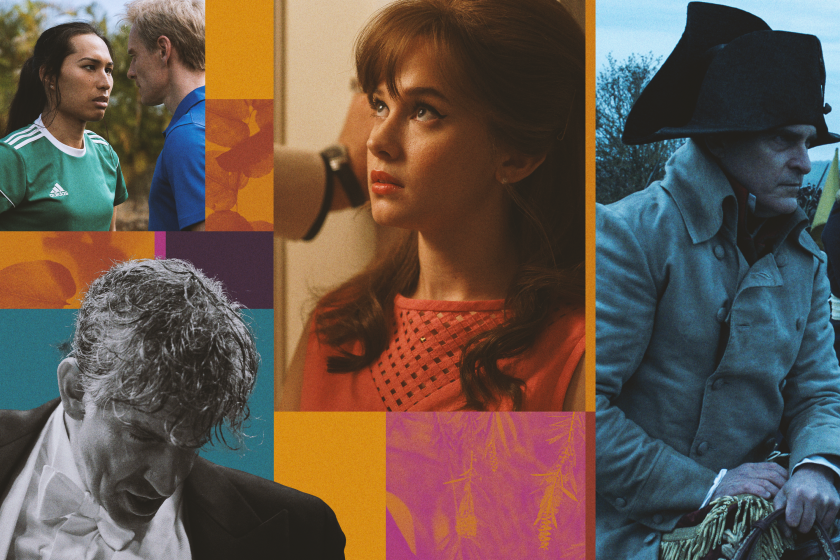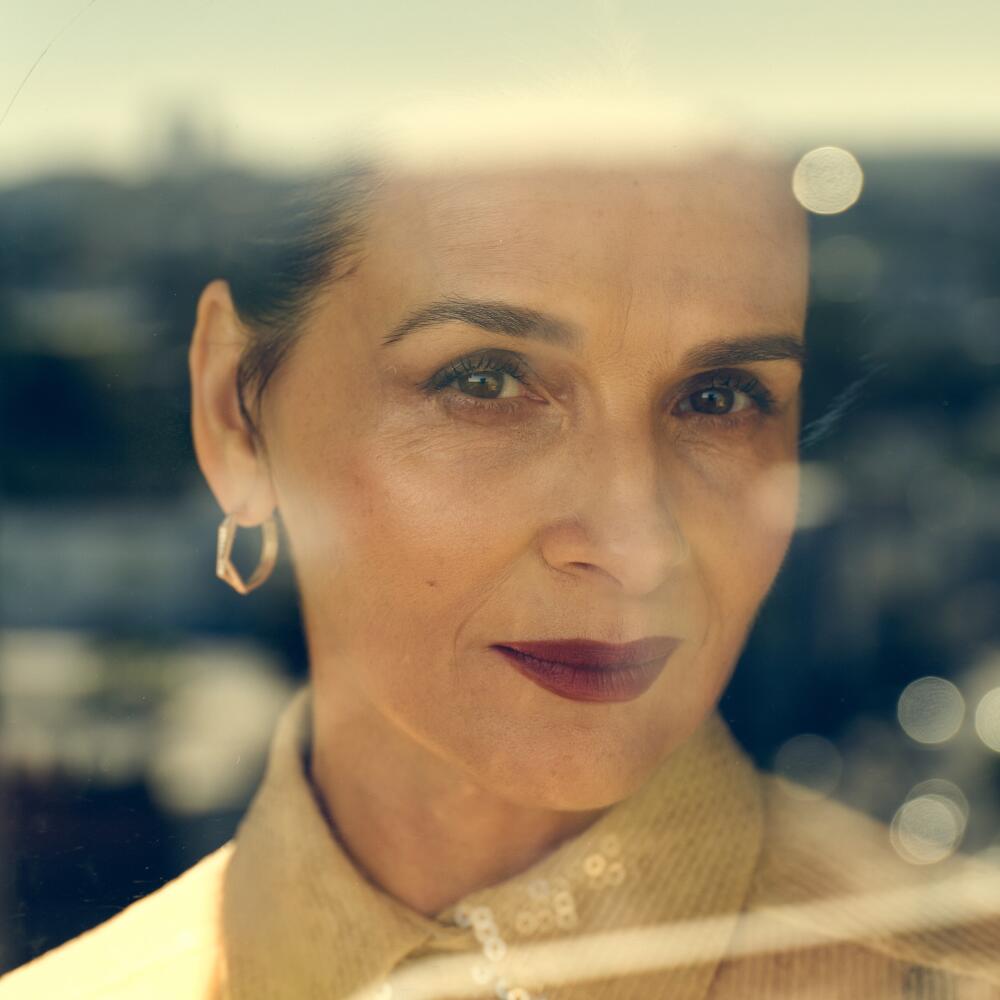
- Share via
Right now, if you’ve heard of Tran Anh Hung’s sumptuous romantic drama “The Taste of Things,” it’s probably for one of two reasons. Maybe you remember that Hung won the best director prize when the movie premiered at the Cannes Film Festival in May. (Back then it was titled “The Pot-au-Feu,” the name of a savory French beef stew prominently featured in the story.)
Or you might recall that, a couple of months ago, France chose “The Taste of Things” as its entry for the international feature Oscar, selecting it over the highly regarded courtroom drama “Anatomy of a Fall,” a movie that took the Cannes festival’s top honor, the Palme d’Or.
The two movies haven’t been widely seen outside of film festivals, so you’ll have to trust me when I tell you that France’s selection committee faced a difficult decision. And yet, sitting across from Juliette Binoche in a small booth at a quiet West Hollywood hotel restaurant, it’s hard to see how they could have made any other choice.
Consider this: The film’s delicate love story between Dodin, a renowned chef (played by Benoît Magimel), and Binoche’s Eugenie, Dodin’s cook, muse, life (and, if he had his way, wife), contained everything audiences associate with France.
From Hollywood big shots like Martin Scorsese and Ridley Scott to our favorite indie provocateurs, here are the 20 films we’re most thrilled to line up for.
“You have food,” I tell Binoche ... and she takes the baton. “You have love,” she says. “And,” I continue, “you have Juliette Binoche.” She laughs. “What’s more ...” and she finishes the thought, “French than that?”
“The funny thing,” Binoche tells me, “is that in France I’m considered more international. But everywhere else in the world, I’m France. I used to fight it. But now I think I have to accept where I come from and embrace it. That’s my culture. Still,” she pauses, considering. “I feel that my heart doesn’t have any borders.”
Binoche exposes her heart in “The Taste of Things” — more so than I realized before we met. The movie introduces Eugenie and Dodin in a leisurely scene that finds them preparing a lavish dinner for friends at their rustic chateau in the Loire Valley. It’s the late 19th century, gastronomic genius is in full bloom and, as the sequence unfolds, we learn about the relationship the characters have to each other and the food they create.
Their love runs deep. But Eugenie sets the terms, keeping her own bedroom and refusing Dodin’s persistent entreaties to marriage. I ask Binoche why she resists. She mulls over the question.
“I’m asking a woman who has never been married,” I offer. “So I’m guessing you’re good at this.”
Binoche laughs. “No, in fact, I always wanted to get married,” she says. “I always dreamt to be married. And I waited and waited and waited. And I’ve been offered when it was a time to separate.” She smiles at the memory. “‘Why didn’t you ask me at the beginning?’
“In the case of Eugenie, she is smart enough to understand that a little bit of resistance keeps the passion,” Binoche continues. “Sometimes, it’s better to not let everything happen.”
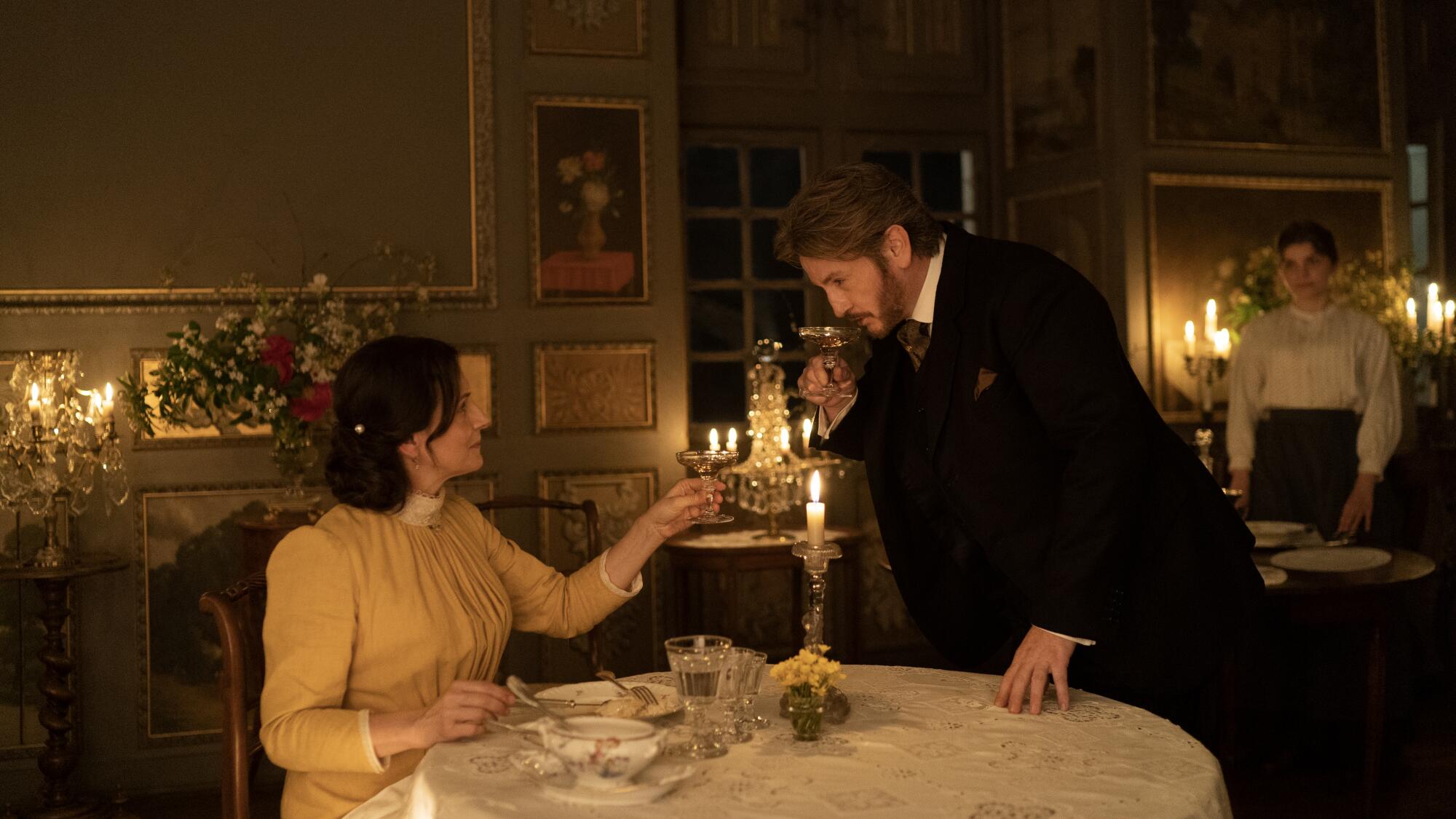
The couple’s dynamic onscreen is informed by the fact that Binoche and Magimel were together once, meeting while making the 1999 French film “Children of the Century,” an account of the doomed love affair between novelist George Sand and poet Alfred de Musset. They separated in 2003, four years after the birth of their daughter, Hana.
I had heard, maybe from writer-director Hung, that Binoche and Magimel had remained on good terms. But when I tell this to Binoche, she flashes me a playful reproach indicating that this is not quite true. “You’re going quite fast,” she tells me with a laugh. “But if you want to believe that, just do.”
She has more to say on the subject.
“No, I think it’s because we didn’t speak that much over the years that it was such a relief to be able to act with him and tell him through Hung’s writing all the love I have for him, no matter what happened,” Binoche says. “And that meant a lot to me and for him as well.” She stops. “But I don’t know, because he never told me. But that’s what I felt. I used this film to tell him, ‘I love you. And it’s all right.’”
Magimel was not Hung’s original choice for the role. Two other actors dropped out before Hung cast him.
“It’s interesting how a film finds its actor,” Binoche says. “It was a stroke of chance.”
Did Hung run the idea by her?
“My agent asked me if it was OK to give the script to Benoît, and I said yes, thinking he was not going to do it,” Binoche says. “Then when he said yes to it, I thought, ‘What?’ and worried. I was surprised he would dare go into acting with me in a film about a long-lasting, conjugal relationship.”
“That’s strange to me,” I say.
“That’s a miracle to me!” Binoche answers, laughing.
So after more than two decades apart, you could communicate ...
”... through words written by someone else,” Binoche says, finishing my sentence. “So, I didn’t have the responsibility. I was free in a way because it was not me. But I could use those words as a medium to tell him what I wanted to express, what I couldn’t express for years and years. And also for our daughter, to show her and say, ‘See. We love each other.’”
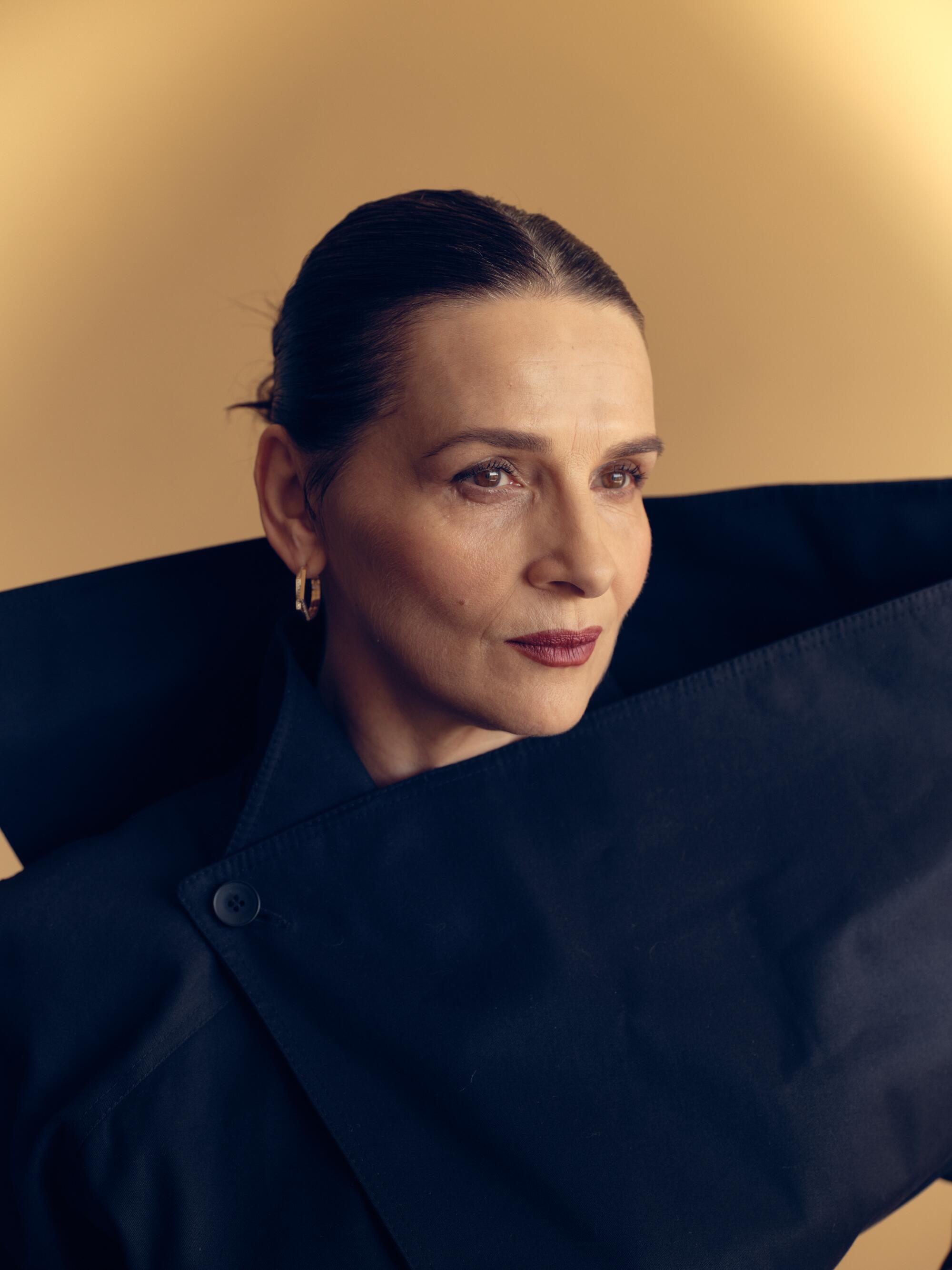
What did she think when she saw the film?
“I don’t think she thought. I think she was overwhelmed,” Binoche says, describing her 23-year-old daughter’s reaction. “Very touched, of course. And I think it healed something. Seeing her parents, no matter what happened in the past, that there’s still love. And at the end of all the game of life, all the game of relationships, there’s love. And that’s what counts in between people. I don’t have hate or regret. It’s gone. My heart is transformed. And I think that’s what we need to do as human beings. At the end of the day, we need to reconcile. So, to me, this film was a gift in that respect.”
Over dinner at the Telluride Film Festival, Hung had told me that Binoche was quite the gourmet. She shakes her head.
“I love eating,” she says, taking a forkful of her miso salmon. “It’s one of the pleasures of life. It’s what makes us human. But I’m a better cook on film than I am in life.”
Talking about Los Angeles, Binoche will enthuse about many things — the weather (of course), friends, the contrasts in traditions.
“But I’m not in love with your food,” she says, laughing heartily. “Even though it is tremendous ... you know ...”
She can’t finish the thought, probably due to a complete lack of conviction.
“I find it difficult,” she finally says.
What about a good Mexican meal?
“It’s always the same — avocado, avocado, avocado,” she answers, again with a burst of laughter.
When she’s home in Paris, Binoche does cook — simple recipes, focusing on fresh ingredients. She learned from her mother, an early believer in the organic farming movement, and now she teaches her daughter, who lives with her.
“When you have kids, you have to cook,” she says.
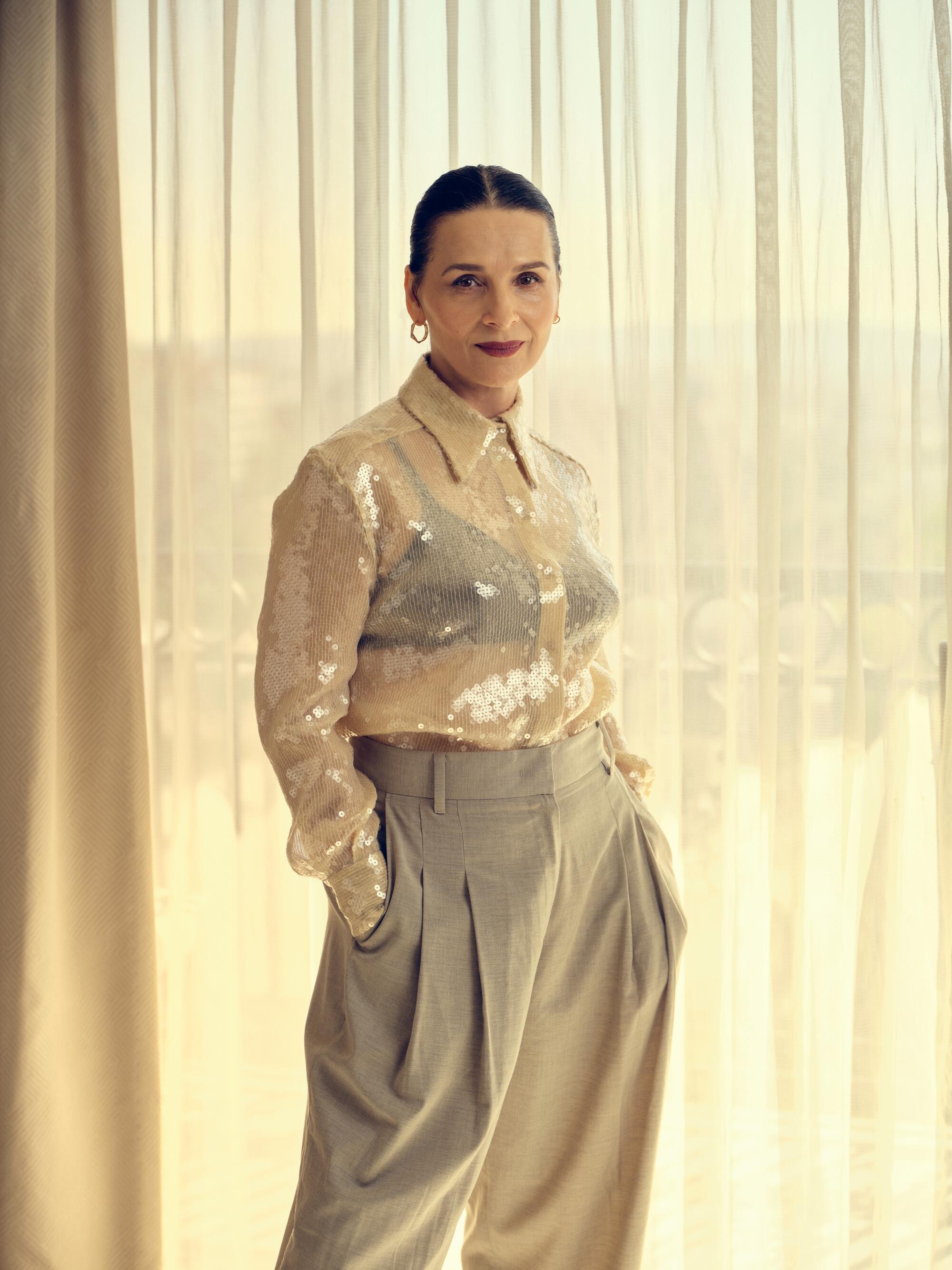
But she’s 23, I say. She can cook for you. Binoche looks at me the same way she did when I had assumed she and her ex had been on good terms.
“Now we cook for each other,” she allows, and then changes the subject.
“You know what I like as a woman?” she asks. “When you see a man cooking, it’s so seductive. I believe it’s one of the best seductions ever.”
You’re speaking from experience?
“I’m speaking from experience,” Binoche answers, laughing.
If a man wants to find his way into your heart ...
“It’s one step,” she says. “It doesn’t mean you get all the steps. But at least one step.”
The waiter interrupts. Binoche asks if I want anything else.
Do you? I counter.
Juliette Binoche stars in the French-language drama “Who You Think I Am,” about an older woman who creates a fake social media profile.
“Don’t ask me ... they have cookies here,” she replies. Of course, we order them, along with coffee.
Binoche will turn 60 in March, and I wonder if she has any advice for people hitting that milestone.
“I do,” she answers firmly. “Enjoy life!” The way Binoche declares this, it’s practically a command. It’s no coincidence that a beat after making this statement, she breaks a chocolate chip cookie in half. It’s warm and gooey, and Binoche licks the chocolate off her fingers. It’s a little sugary for her taste, she says, but that doesn’t stop her from taking a second one off the plate.
“Getting older doesn’t bother me,” Binoche says. “Life is made like that. So you’re not going to fight against it. It’s too painful to fight against it. And also, time is bringing you other things.”
What is it bringing you?
“For me, it’s a sort of freedom,” Binoche answers. “I’m more relaxed now than I was before. And that only comes when you can let go of certain things. It can be beautiful, I think — like opening a door to a new way of seeing life.”
More to Read
Sign up for The Envelope
Get exclusive awards season news, in-depth interviews and columnist Glenn Whipp’s must-read analysis straight to your inbox.
You may occasionally receive promotional content from the Los Angeles Times.
